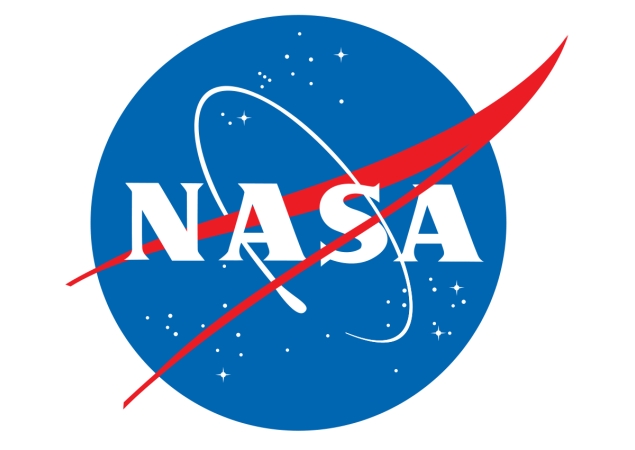- Home
- Others
- Others News
- NASA plans for asteroids, astronauts and a trip to Mars
NASA plans for asteroids, astronauts and a trip to Mars

"The idea is to continue branching ourselves out very slowly into the solar system, pushing the limits and going deeper into space than ever," said NASA spokesman Allard Beutel, in an interview with RIA Novosti Thursday.
"In the long run, what we're trying to do is maintain NASA as the world's leading space agency," he added.
The programme that has captured the public's attention is NASA's $2.6 billion Asteroid Initiative, planned long before a meteorite hit Russia in February, causing wide-spread damage and reminding people around the world that asteroids pose a dangerous threat to the planet.
NASA plans to launch a spacecraft by 2017 and capture an asteroid by 2019 as it speeds through space using a high-tech "lasso" of sorts, then pull it into the moon's gravitational orbit where astronauts can visit it, study it, and return to Earth with samples.
The target asteroid has not yet been identified, but ideally it will be roughly 500 tonnes and 25 feet in diameter.
"This mission represents an unprecedented technological feat that will lead to new scientific discoveries and technological capabilities and help protect our home planet," NASA chief Charles Bolden said in a statement.
The hope is to have astronauts walking on the asteroid as soon as 2021.
Other specific goals for the US space programme include
- Getting American astronauts back into space on US spaceships by 2017, and not having to rely on Russia's Soyuz space capsules.
- Launching the James Webb Space Telescope, the largest ever built, in 2018, to be positioned roughly one million miles (1,609,344 km) from Earth
- Landing astronauts on Mars by 2030
"It's great to have international partnerships but as an American I would like to have transportation launching from the US to and from the ISS," said Beutel, adding that in the modern-day version of the space race, the big goal is a bit more distant.
"The Red Planet clearly has a bullseye. Mars is the prize for people to land astronauts on in the next couple of decades," he said.
NASA's roadmap for the future combines a quest for scientific knowledge with a thirst for private exploration. But plans for commercial space flight rely on private companies like SpaceX, Orbital Sciences, Boeing and others, a move that NASA said will open the door to outer space.
"There are a number of companies that are looking for contracts to take astronauts to and from the space station and once that begins to happen, it could become open to the general public. There could be private space stations, private flights. Once the technology is there, it's there for everybody," he said.
Get your daily dose of tech news, reviews, and insights, in under 80 characters on Gadgets 360 Turbo. Connect with fellow tech lovers on our Forum. Follow us on X, Facebook, WhatsApp, Threads and Google News for instant updates. Catch all the action on our YouTube channel.
Related Stories
- Samsung Galaxy Unpacked 2026
- iPhone 17 Pro Max
- ChatGPT
- iOS 26
- Laptop Under 50000
- Smartwatch Under 10000
- Apple Vision Pro
- Oneplus 12
- OnePlus Nord CE 3 Lite 5G
- iPhone 13
- Xiaomi 14 Pro
- Oppo Find N3
- Tecno Spark Go (2023)
- Realme V30
- Best Phones Under 25000
- Samsung Galaxy S24 Series
- Cryptocurrency
- iQoo 12
- Samsung Galaxy S24 Ultra
- Giottus
- Samsung Galaxy Z Flip 5
- Apple 'Scary Fast'
- Housefull 5
- GoPro Hero 12 Black Review
- Invincible Season 2
- JioGlass
- HD Ready TV
- Latest Mobile Phones
- Compare Phones
- Tecno Pova Curve 2 5G
- Lava Yuva Star 3
- Honor X6d
- OPPO K14x 5G
- Samsung Galaxy F70e 5G
- iQOO 15 Ultra
- OPPO A6v 5G
- OPPO A6i+ 5G
- Asus Vivobook 16 (M1605NAQ)
- Asus Vivobook 15 (2026)
- Brave Ark 2-in-1
- Black Shark Gaming Tablet
- boAt Chrome Iris
- HMD Watch P1
- Haier H5E Series
- Acerpure Nitro Z Series 100-inch QLED TV
- Asus ROG Ally
- Nintendo Switch Lite
- Haier 1.6 Ton 5 Star Inverter Split AC (HSU19G-MZAID5BN-INV)
- Haier 1.6 Ton 5 Star Inverter Split AC (HSU19G-MZAIM5BN-INV)







![[Partner Content] OPPO Reno15 Series: AI Portrait Camera, Popout and First Compact Reno](https://www.gadgets360.com/static/mobile/images/spacer.png)









